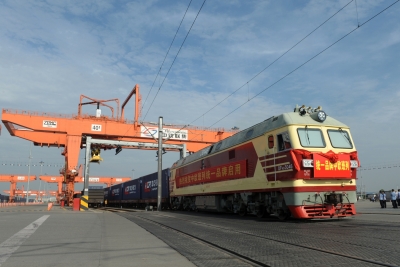
Naypyidaw, Nov 28 (IANS) China’s expanding global footprint through initiatives like the Belt and Road Initiative (BRI), which involves heavy infrastructure investments across Asia, Africa, and Latin America, has not necessarily translated into admiration, a report detailed on Friday.
It added that although these projects have contributed to development in some regions, they have also triggered accusations of debt-trap diplomacy, environmental degradation, and political interference by Beijing.
“Despite its meteoric economic rise and expanding global influence, China finds itself increasingly distrusted and criticised on the international stage. The erosion of its global reputation is no longer viewed solely through the lens of geopolitical rivalry or Western bias; it is now widely seen as a consequence of internal dysfunction and external missteps that have alienated allies and fuelled skepticism,” a report in Mekong News Myanmar detailed.
According to the report, countries such as Sri Lanka and Zambia have been pushed into unsustainable debt burdens tied to Chinese loans, fueling growing concerns about Beijing’s intentions.
“Cultural insensitivity and disruptive behaviour abroad have further tarnished China’s image. Reports of Chinese tourists engaging in inappropriate conduct such as littering, disrespecting sacred sites, and filming funerals have become common in global media. While these incidents may not represent the majority, they reinforce negative stereotypes and deepen resentment in host nations. In Japan, a high-profile case involving a Chinese national running a prostitution ring among students, with profits exceeding 270 million yen, shocked the public and reignited concerns about moral decline and criminal exploitation,” it mentioned.
The report stressed that Chinese students abroad have drawn increasing scrutiny, with Universities in North America and Europe quietly stepping up monitoring amid growing concerns over academic misconduct, theft, and entitlement.
“These behaviours, though not universal, reflect a deeper malaise rooted in China’s domestic environment where intense competition, materialism, and a lack of civic education have eroded ethical standards,” it noted.
China’s reputational crisis, the report said, stems from a system that values profit over principle, and when morality is compromised for material gain, the society it produces appears “transactional, opportunistic, and ethically compromised”.
“This perception, whether fair or exaggerated, shapes how the world engages with China and its people. To reverse this trend, China must confront its internal contradictions. It must foster a culture that values integrity, respect, and global citizenship, not just economic success. Civic education, ethical leadership, and genuine international cooperation are essential to rebuilding trust. Until these changes occur, the gap between China’s ambitions and its global image will continue to widen,” it emphasised.
–IANS
scor/as




